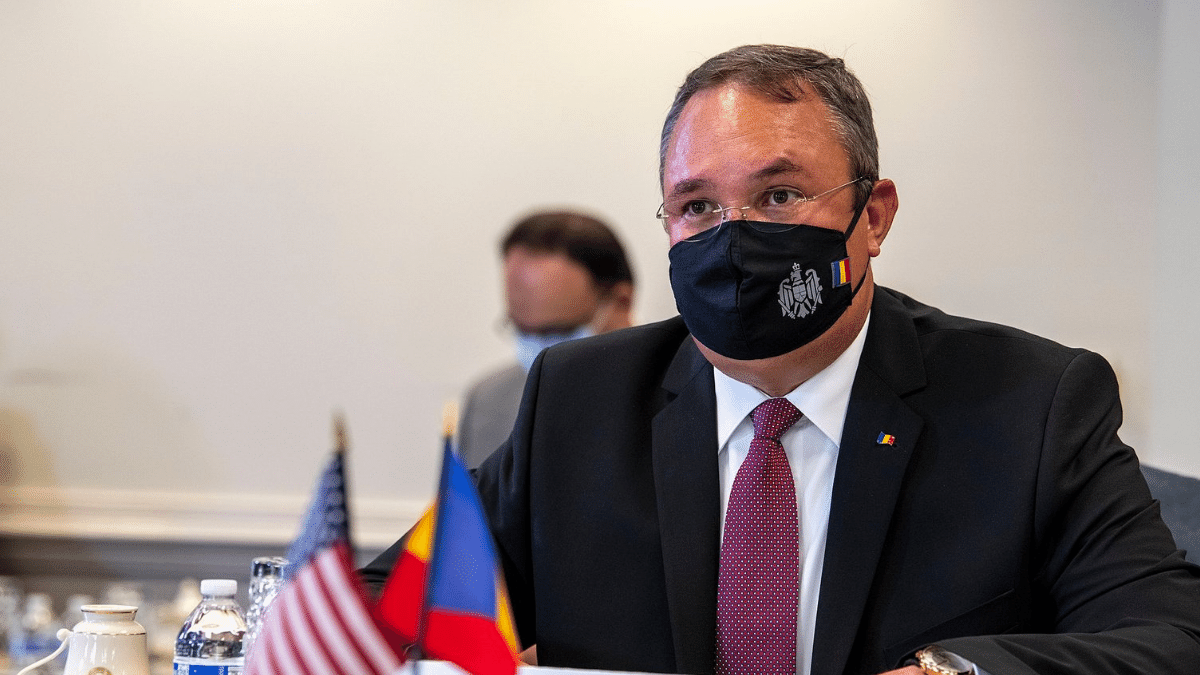Romanian Prime Minister Accused of Plagiarizing Dissertation

In a story that will be eerily familiar to long-time readers of this site, the current Romanian Prime Minister has been accused of plagiarism in his thesis as opposition leaders are already calling for an investigation.
The story involves Prime Minister Nicolae Ciucă, who was assumed the title in November 2021, just two months ago.
According to an investigation by Romanian Journalist Emilia Şercan (link in Romanian), some 42 pages of Ciucă’s 138-page dissertation was plagiarized from outsides sources that “could not be detected by an anti-plagiarism program.”
Ciucă submitted the thesis before receiving his 2013 doctorate in military sciences from the National Defense University in Bucharest.
According to Şercan’s analysis, the dissertation was plagiarized from print sources that would not have been included in any anti-plagiarism database, including 19 pages taken from two other doctoral theses previously defended at the university.
She further alleges that, in addition to copy and paste plagiarism, that Ciucă also used other techniques to mask the plagiarism.
Opposition politician Dacian Cioloș has called for an “urgent clarification” from the Prime Minister and an investigation. He went on to say that, should the claims be proven true, that “an honorary resignation is necessary.”
Ciucă, for his part, has denied the allegations and has said that the thesis was “drawn up in accordance with the legal requirements” of the time. He went on to add that the allegations against him could not be proven scientifically.
For long-time readers of this site, this story will be a case of deja vu. Back in 2012, we covered another Romanian Prime Minister, Victor Ponta, who faced similar allegations of plagiarism in his dissertation.
Ponta held onto the position for three more years but resigned in 2015 following a deadly nightclub fire that sparked protests against government corruption. In 2020, after nearly a decade of investigations, Ponta relinquished his Ph.D.
This raises the question, what is next for Ciucă. The answer, most likely, is a long and divisive road.
A Long Path Ahead
If Victor Ponta’s case is any indication, it’s likely that this plagiarism allegation will remain divisive for some time to come though any immediate impacts are unlikely.
When Ciucă took office in November, it was part of a power-sharing deal with another party. As part of that arrangement, he’s agreed to step aside in 2023 to rotate other Primte Ministers in. As such, it’s very likely that Ciucă will step aside before any real action is taken against him.
With Ponta’s case, for example, there were a myriad of investigations both by government agencies and by the university. The findings of the investigations were often wildly different based on whether the organization supported Ponta or not.
This back and forth meant that Ponta held on to his position for three years after the scandal broke and his degree for eight. The whole time, it remained a flash point for party politics in the country.
A similar situation is likely here. That said, even in a perfectly normal situation, an academic plagiarism investigation of this kind can take multiple years to both research, have hearings and hear appeals. The process can be slow and tedious on the best of circumstances and these are far from ideal circumstances.
The only hope for a quick resolution is that Ciucă himself will step down. However, given his response, that seems highly unlikely.
What Everything Hinges On
Ciucă is far from alone when it comes to being a major politician accused of thesis or dissertation plagiarism. Over the past decade, we have discussed nearly a dozen different central and eastern European politicians that have faced allegations of plagiarism.
Most were eventually forced to resign or at least step back from politics. However, several others, including former German Defense Minister Ursula von der Leyen, moved on with their career. In von der Leyen’s case, she is the current President of the European Commission, making her the head of the executive branch in the EU.
The difference is that von der Leyen retained her degree after an investigation. Though the school did confirm that the plagiarism took place, it allowed her to keep her doctorate saying that no “deliberate deception” took place.
Ciucă long-term future is very likely hinges on the findings of both the university and government oversight agencies. If his degree is revoked, it will be difficult for him to get back in office.
However, that point may be moot. With his short planned tenure and the likely timeframe of the investigation, it may not matter.
Ultimately, it’s another political plagiarism scandal to add to the history books.
Bottom Line
We talked previously about the unique situation of Romania when it comes to plagiarism. The country made a challenging transition from communism to capitalism in the late 80s and early 90s. During that time, it became popular for elites to hold doctoral degrees.
This cause a sharp rise in the number of for-profit universities and people seeking degrees not because they valued the academic title, but because they sought the prestige that comes with them.
However, Ciucă’s case really doesn’t fit that mold. Not only was his thesis submitted well after the transition period, it was after Ponta’s scandal. If Ciucă did plagiarize, he did so with the full knowledge of the risks and potential outcomes.
Though this isn’t likely to impact Ciucă’s immediate plans, the story is a reminder that building a career on a plagiarized dissertation or thesis can cause that career to come crashing down at any point.
Such a work is a time bomb that’s always ticking and any time or effort savings gained by it are clearly not worth the risks.
Want to Reuse or Republish this Content?
If you want to feature this article in your site, classroom or elsewhere, just let us know! We usually grant permission within 24 hours.
